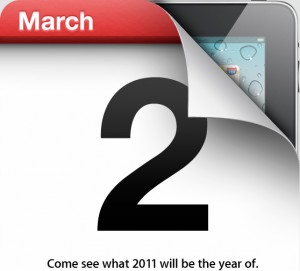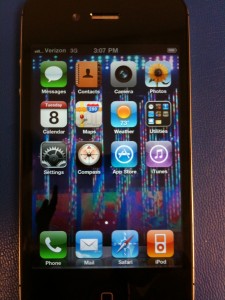To those that follow the industry, it’s no secret that the company that makes the Blackberry, RIM, is in trouble. From a sales perspective, they still sell a lot of devices, but from a consumer perspective, they are nearly forgotten outside of the “old” smartphone market (i.e. corporations and tech-savvy people that have had Blackberries for a long time). Industry experts have been warning that RIM has fallen way behind to Apple’s iOS (iPhone and iPad) and Google’s Android platforms for some time now. But it doesn’t take an expert to see that the operating system of the Blackberry is still rooted in it’s original design that was created in the late 90’s. It was great back then, but certainly seems dated today.
An open letter to RIM’s executive management from an anonymous RIM senior manager was recently published on the Internet. The letter portrays a company internally dysfunctional and lost on what it needs to do to successfully compete. This is the major takeaway for anyone who has any interest in the Blackberry platform.
However, while the letter is focused on RIM’s issues, it brings up many topics about the smartphone industry that I have talked about before, both in this blog and to my clients directly. It is those points that I’d like to emphasize, taking quotes from the letter.
We often make product decisions based on strategic alignment, partner requests or even legal advice — the end user doesn’t care. We simply have to admit that Apple is nailing this and it is one of the reasons they have people lining up overnight at stores around the world, and products sold out for months. These people aren’t hypnotized zombies, they simply love beautifully designed products that are user centric and work how they are supposed to work.
I’ve made reference many times to how most smartphone vendors market their products as if they are “made by geeks for geeks”. They talk about specs, speed, capacity, and how “kick-ass” they are. Yet the reality is that most other smartphones simply don’t work as well as the iPhone. What this letter points out, and I can substantiate, is regardless of all the marketing done, if a product simply doesn’t work how it is supposed to (and the common expectation is that it will work as well as the iPhone), then the end-users will not like it. For all the “cool” technology behind a product, users just want something that works and works well. The iPhone should have made this abundantly clear to all tech companies. Obviously, it hasn’t sunk in yet for most.
Until companies embrace user-focused product development AND then figure out how to successfully implement it, they won’t touch Apple. And therein lies the rub. Companies must first embrace this thinking, which is extraordinarily difficult for most tech companies to come to grips with. It won’t happen overnight. There’s a lot of corporate culture to change and that takes time. And then once that long process is over, the company actually has to figure out how to make great, user-friendly products. That of course takes vision and talent, but it also takes experience. That is experience Apple has learned over 35 years. RIM, and most tech companies, have very little of it.
There is no polite way to say this, but it’s true — BlackBerry smartphone apps suck. Even PlayBook, with all its glorious power, looks like a Fisher Price toy with its Adobe AIR/Flash apps.
The original iPhone was successful. It made people stand up and take notice. Looking back, however, it really didn’t make that much of a dent in the smartphone market. It was the next year that Apple changed the world by introducing the App Store. Since that time, the tremendous success of the App Store has catapulted iOS devices into every aspect of society. Overnight it was no longer enough to make a nice smartphone. That smartphone had to run apps – and lots of them. It took a year or two for competitors to even get into the game. Now it seems that Apple’s experience working with third-party developers as well as the polished and mature software development environment provided for the iOS (both honed for years on the Macintosh platform) have put Apple into a position where the quality of their Apps is head-and-shoulders above everyone else. No other tech company (besides Microsoft) has the wealth of experience working with developers and development tools, so it would seem that this puts RIM at a distinct disadvantage.
25 million iPad users don’t care that it doesn’t have Flash or true multitasking, so why make that a focus in our campaigns? I’ll answer that for you: it’s because that’s all that differentiates our products and its lazy marketing … My mother wants an iPad and iPhone because it is simple and appeals to her. Powerful multitasking doesn’t.
Earlier I mentioned how most smartphone companies market their products as if they were “made by geeks for geeks”. Compare this to Apple’s marketing where they highlight the simplicity and ease-of-use of their products. In many cases, Apple’s marketing is inconsequential as the real secret to their growth is word-of-mouth. Apple owners tend to become evangelistic about their devices, proudly showing them off to their friends and family who quickly purchase their own Apple products and continue to spread the word. Again, most tech companies simply don’t understand that “old world” marketing only appeals to tech-savvy people. When the smartphone market was small and made up of mostly geeks, that worked well. Now that Apple has kicked open the doors of the smartphone market to the mainstream, that type of marketing is no longer effective. But again, it will take a complete corporate culture change for a company to embrace this type of thinking, then they must create the products that are user-focused, AND then they must understand how to market it. Again, none of this will happen overnight.
The bottom line is this letter highlights the trouble with RIM, but it basically shows the fundamental weaknesses of most tech companies which Apple is currently exploiting. The secret to Apple’s success is that they are the ONLY company in the market with so much experience in user-focused computing. That experience has been gained over 35 years, starting in the dawn of the personal computer market. No other company can touch that level of expertise and it is showing now. Only the companies that are strong enough to stick around, gain the necessary experience, and change their corporate culture will have any chance of competing with Apple. Unfortunately for RIM, time is a luxury it does not seem they have. Unless RIM can pull off a miracle, dramatically change their company, and introduce products that can feasibly compete in the new world of technology, it seems their days are numbered.

